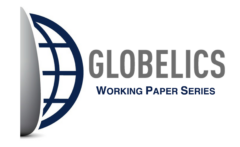The challenge of preparing for more sustainable futures increasingly finds resonance outside OECD countries. One salient development is that manufacturing bases for clean-tech industries are shifting to emerging economies. So far, the question how latecomers may achieve leapfrogging in sustainable technologies has not yet been clearly spelled out in the two most important literature streams in the field: Transition studies are just about to address issues of globalization, whereas catch-up studies have given scarce attention to the specific challenges of clean-tech industries. This paper states that one of the major challenges is the elaboration of a more systemic understanding of how windows of opportunity for leapfrogging can be addressed. To achieve this, we draw on recent insights on industry emergence from transition studies. In particular, we argue that the concept of “Guidance of Search” provides a fruitful starting point for analysing how actors may influence the selection environment in an industry so as to support the emergence of a new dominant technology. The framework is illustrated with a case study on China urban water management. Over the past twenty years, a number of radical transformations in the sectoral selection environment led membrane bioreactor technology to become the dominant choice, a development unmatched in any other country in the world. Despite entering the industry as a latecomer, China caught up with multinational players in a tremendous speed. Drawing on 44 in-depth interviews with triangulation of secondary reports and data, this paper argues that this framework is able to account for explaining the observed shifts and ultimately enables the identification of a broader set of leapfrogging strategies compared to those proposed by the extant catch-up literature.
Sustainability transitions and technological catch-up: Guidance of search as a strategic mechanism for leapfrogging
Author(s): Xiao-Shan Yap & Bernhard Truffer
Working Paper No.: 2018.07
Keywords: Sustainability transition, catch-up, leapfrogging, Technological Innovation System, urban water management
